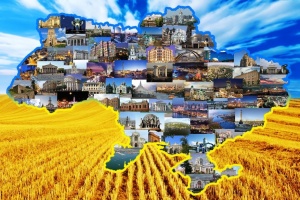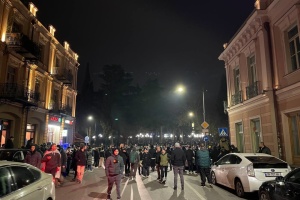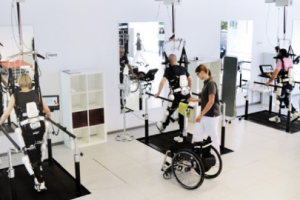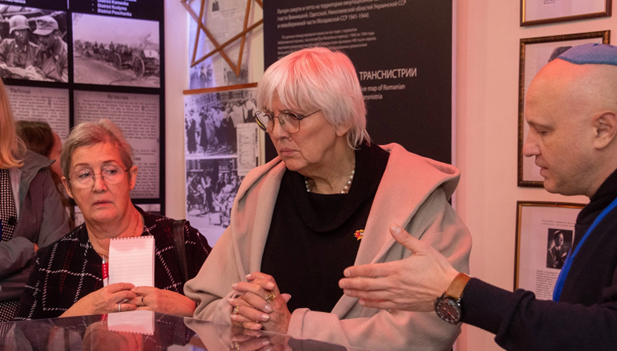
Culture’s importance for democracy becomes clear in Ukraine - German minister
That’s according to a Der Spiegel reporter Tobias Rapp, who accompanied German State Minister of Culture Claudia Roth during a two-day visit to Odesa in late October.
Rapp reflects that Ukraine must not only win the war, but also develop its cultural identity, which Russia is restricting.
“And amid the war, culture lives on … precisely in Ukraine, where reports of heavy fighting are constantly coming in, especially these days, when they fight for every piece of land. This war is not only about territory. It is about identity, about culture,” the article notes.
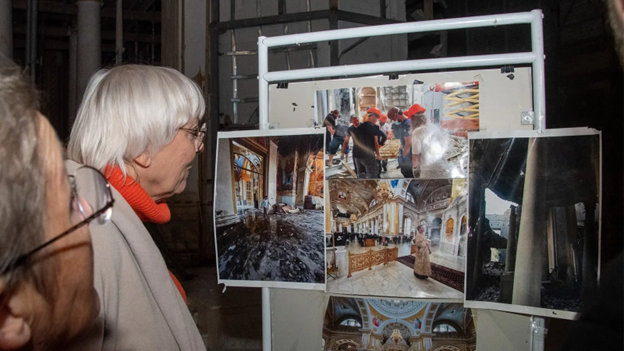
The author recalls that Putin had unleashed his war with statements that the Ukrainian nation does not exist. However, Ukrainians know that it does, and this gives them the strength to fight. And it is also important for them that they are part of Europe, not Russia.
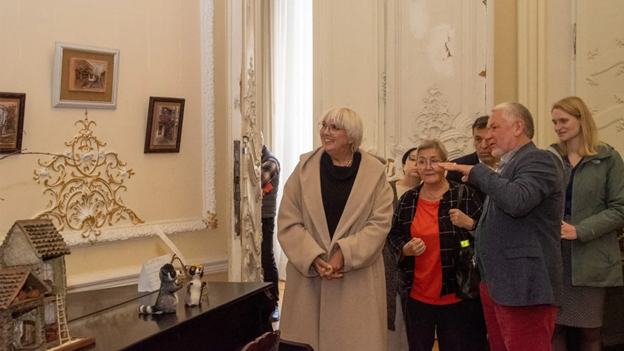
But Europe, the West in general, to which the Ukrainian nation turns with hopes, no longer knows what it seeks to be, the journalist notes. He believes that “Western European nations have already left behind the drama that Ukraine is experiencing in the whirlpool of war.” He adds that, perhaps, people in Ukraine believe promises given by the West more than the West itself.
“We come to Ukraine to learn the price of freedom,” the minister admitted on her way back to Germany. She does not know how Germans would behave if they found themselves in the similar situation.
The author also quotes Claudia Roth’s words, which she often said during her visit: “In Ukraine, I realized how important culture is for democracy.”
Ukrainian history goes back in the distant past, and the Ukrainian national movement has the same deep roots as the German and Polish ones, the publication recalls. However, the Russian language has been a tool of power for centuries, because language is connected with identity.
At the same time, the author reflects on the laws on language and decolonization, noting that for many Ukrainians, these are challenging processes. In fact, Claudia Roth also asked her colleague Mykola Tochytskyi, “will it really give Ukrainians something if they no longer read Pushkin’s works?”
“The goal is clear: Russian should become in Ukraine something like English in Germany. A second language that many can read and speak, but which is foreign,” the journalist concludes, asking: “Will Ukraine not lose more than it wins in this cultural game with a zero result?”
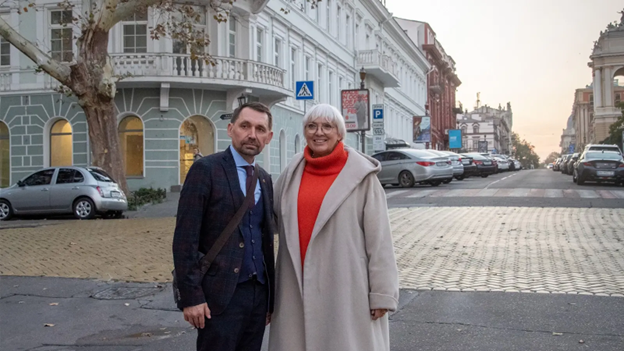
Mykola Tochytsky, who arrived in Odesa to meet his German counterpart, told her that during the 1,000 days of the war, 125 cultural figures were killed, about 100,000 buildings of cultural significance were destroyed, and 1.7 million cultural sites were looted.
Ukrainian museums could temporarily offer parts of their collections to German museums – for exhibitions, as well as to protect them from bombing. But no museum exchanges are currently taking place, the article says, because Ukrainian politicians do not want to give the Russians any chance to say that Ukraine is forwarding its culture to Germany.
As Der Spiegel notes, perhaps the biggest impression of the visit for the German government official was a visit to the Odesa Opera and Ballet Theater. And it was Roth who was the first from the German government to visit Odesa – back in the summer of 2022.
Photo: kulturstaatsministerin.de

